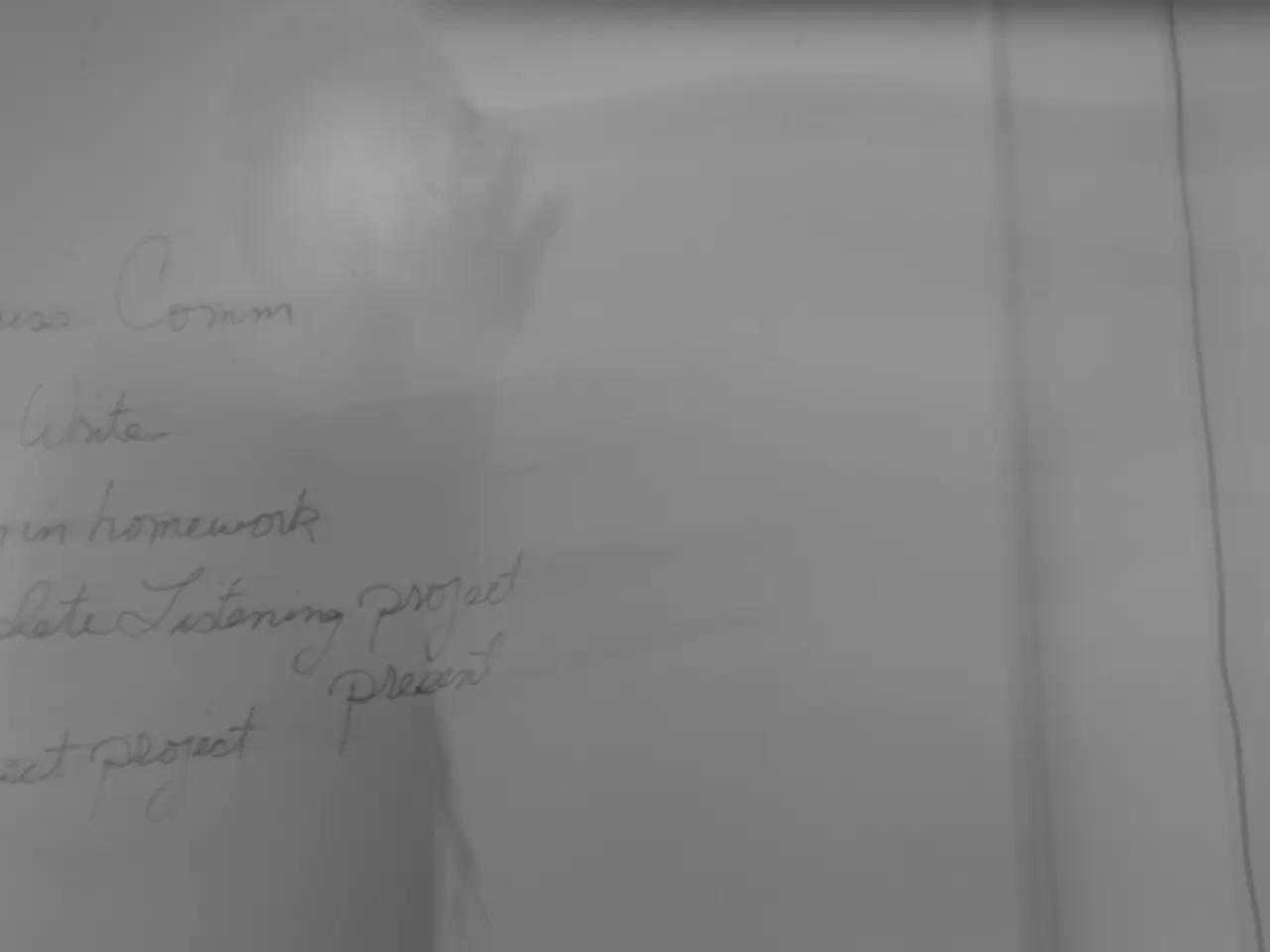Investor enthusiasm in the U.S. short-term wanes due to tariffs
American institutional investors are adapting their investment strategies in response to the impact of tariffs, according to a recent study by KPMG, a leading accounting firm. The research indicates that tariffs are significantly influencing investment decisions, as the uncertainty surrounding them is causing a cautious and selective approach to investing.
The study reveals that investors are focusing on domestic companies in industries experiencing less uncertainty due to the current market environment. This shift towards domestic manufacturing is a response to the perceived benefits of reduced tariff exposure and increased stability.
In the short term, the U.S. economy has shown volatility, with real GDP experiencing a rebound in Q2 following a contraction in Q1. This fluctuation largely reflects tariff-related disruptions, as advance front-running boosted imports and inventories initially, but was followed by sharp declines as the tariff aftershocks took hold.
KPMG warns that tariff costs are already raising goods prices and will increasingly act as a drag on employment. The firm estimates that tariffs could cost about 1.2 million jobs nationally, compounding inflation pressures and weighing on purchasing power and profits. Consequently, business investment weakens outside of select areas like AI infrastructure, while inventories decline and the trade deficit narrows. Government spending is expected to rise only slightly, predominantly on Customs and retiree benefits.
These factors create significant uncertainty for institutional investors, who anticipate subdued growth with GDP averaging around 1.3% in the first half of 2025 and annual growth expected near 1.4%—both well below recent norms. The Federal Reserve’s cautious stance on rate cuts, delayed by tariff-driven inflation persistence, highlights uncertainty in monetary policy responses.
In the longer term, institutional investors are also concerned about structural challenges amplified by tariffs and trade policy uncertainty. Ongoing geopolitical tensions, supply chain weaknesses, and trade policy ambiguity, especially surrounding U.S. tariffs, are expected to suppress global and U.S. growth prospects. Advanced economies, including the U.S., face additional headwinds like aging populations and persistent low productivity growth, which limit the potential for returning to pre-pandemic growth trajectories.
These trade-related uncertainties have led institutional investors to adopt more cautious and selective investment strategies, emphasizing sectors with growth potential such as technology (notably AI infrastructure), while being wary of broader corporate and consumer demand impacts. The overall investment approach reflects anticipation of prolonged volatility and subdued economic expansion.
Among venture capital respondents, 95% expressed optimism for economic growth beyond 18 months, the highest level among all respondents. The KPMG survey included investors from asset management (46%), venture capital (29%), and private equity (25%).
The Trump administration's tariff regime is challenging institutional investors to rethink their investment strategies and risk appetite, as stated by Tarek Ebeid, private leader and partner in charge of KPMG US' Northern California audit practice. Nearly half (47%) of respondents anticipate an economic recession in the next 18 months.
There was a 12-point decline in investor optimism between the surveys conducted in January and February, and April. In the near term, investors are focusing on domestic companies in industries experiencing less uncertainty due to the current market environment, according to Ebeid. Investor optimism for the longer term crept up between the two surveys, with 92% of investors being optimistic about growth prospects beyond 18 months in April.
KPMG defined "near-term" as over the next 18 months. In a separate May survey of finance leaders, one in five believed the nation had already entered a recession. KPMG's survey results show notable differences in confidence among the three investor groups.
The Trump administration's goal in increasing tariffs on foreign-made goods is to bring manufacturing back to the United States. A recent study by the U.S. subsidiary of KPMG shows a decline in investor optimism among 300 institutional investors due to tariffs.
[1] Source: KPMG Research, Q1 and Q2 2025 Economic Outlook [2] Source: KPMG Research, Long-term U.S. Growth Prospects [3] Source: KPMG Research, Venture Capital Outlook [4] Source: KPMG Research, Institutional Investor Outlook
- Investors are focusing on domestic companies in sectors experiencing less uncertainty due to the current market environment, as a response to the perceived benefits of reduced tariff exposure and increased stability. (margin, equity, finance, growth, capital, investment, business)
- The Trump administration's tariff regime is challenging institutional investors to rethink their investment strategies and risk appetite, prompting a cautious and selective approach to investing. (tariffs, markets, finance, investing, business)
- KPMG warns that tariff costs are already raising goods prices and will increasingly act as a drag on employment, resulting in potential job losses and compounding inflation pressures. (tariffs, jobs, inflation, purchasing power, profits)
- Among venture capital respondents, 95% expressed optimism for economic growth beyond 18 months, while nearly half (47%) of all respondents anticipate an economic recession in the next 18 months. (venture capital, optimism, recession)
- The overall investment approach reflects anticipation of prolonged volatility and subdued economic expansion, with the prospect of prolonged tariff-related uncertainties and structural challenges amplified by trade policy uncertainty. (volatility, economic expansion, tariffs, trade policy, uncertainties)




